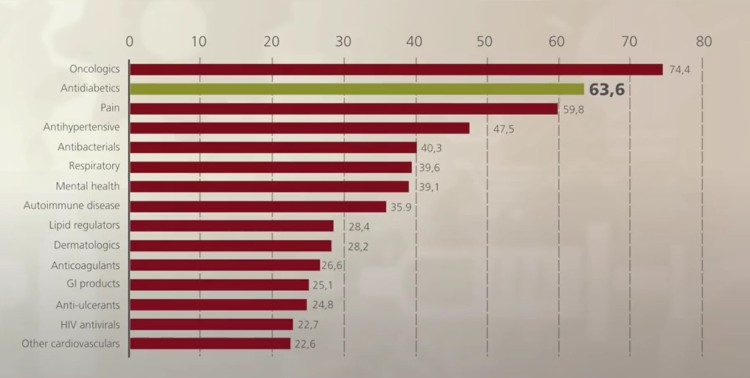I am participating in an massive online open course (MOOC) from the University of Copenhagen and Copenhagen Business School on the topic of Innovating Solutions for Aging Populations.
The free course is offered through Coursera; it started June 6th and runs until July 17th. You can read more about the course and sign up for future offerings at: https://www.coursera.org/learn/health-care-innovation
Week 1 included short introduction videos covering the growth in life expectancy, reductions in childhood mortality rates, and the shift from healthcare focusing on infectious diseases to focusing on chronic and noncommunicable diseases.
In this module you will be presented with the physiology, complications, prevention and treatment of diabetes. Also, you will be introduced to self-management tools designed to help people with diabetes choose healthy meal plans.
Lecture 1: Diabetes/metabolism
This week’s video lectures focused on a brief introduction to diabetes (what it is, how many people have it, what can cause it, and tools to manage and treat diabetes), and a strong focus on using diet as a self-management tool. They report that a healthy lifestyle (including exercise and healthy eating with at least 30% of meals consisting of vegetables) has a higher success rate than using medications alone. They also reported that cancer medications and diabetes medications are the two most sold drugs worldwide (big pharma makes BIG money!!)

Quiz
Q1. Which physiological mechanism is impaired when insulin sensitivity is reduced in type 2 diabetes?
A1. The insulin-stimulated glucose uptake, primarily by muscle cells
Q2. Based on the lecture, which of these persons have the highest risk of developing insulin resistance?
A2. Both John’s parents have type 2 diabetes, John is obese and doesn’t exercise much
Q3. How should type 2 diabetes be prevented?
A3. By early identification and by changing lifestyle
Lecture 2: Diet self-management
The lectures also talked about tools (two apps for smart phones) called My Plate and My Day. These seem to still be under development, but focus on helping people to track their daily habits, especially around eating and nutrition and living an active lifestyle.
Quiz
Q1. What is hard for Eva in relation to her treatment?
A1. Accepting her diabetes
Q2. What does self-management mean in relation to diabetes?
A2. Taking responsibility for managing the treatment
Q3. What is the purpose of the “plate models”?
A3. The T-shaped plate model to loose weight. The Y-shaped plate to maintain weight
Q4. Which macronutrients provide humans with energy?
A4. Carbohydrates, fat, protein and alcohol
Q5. What affect does fat have on blood glucose levels?
A5. High fat foods can delay a rise in blood glucose level
Q6. What macronutrient have highest impact on blood glucose?
A6. Carbohydrate




